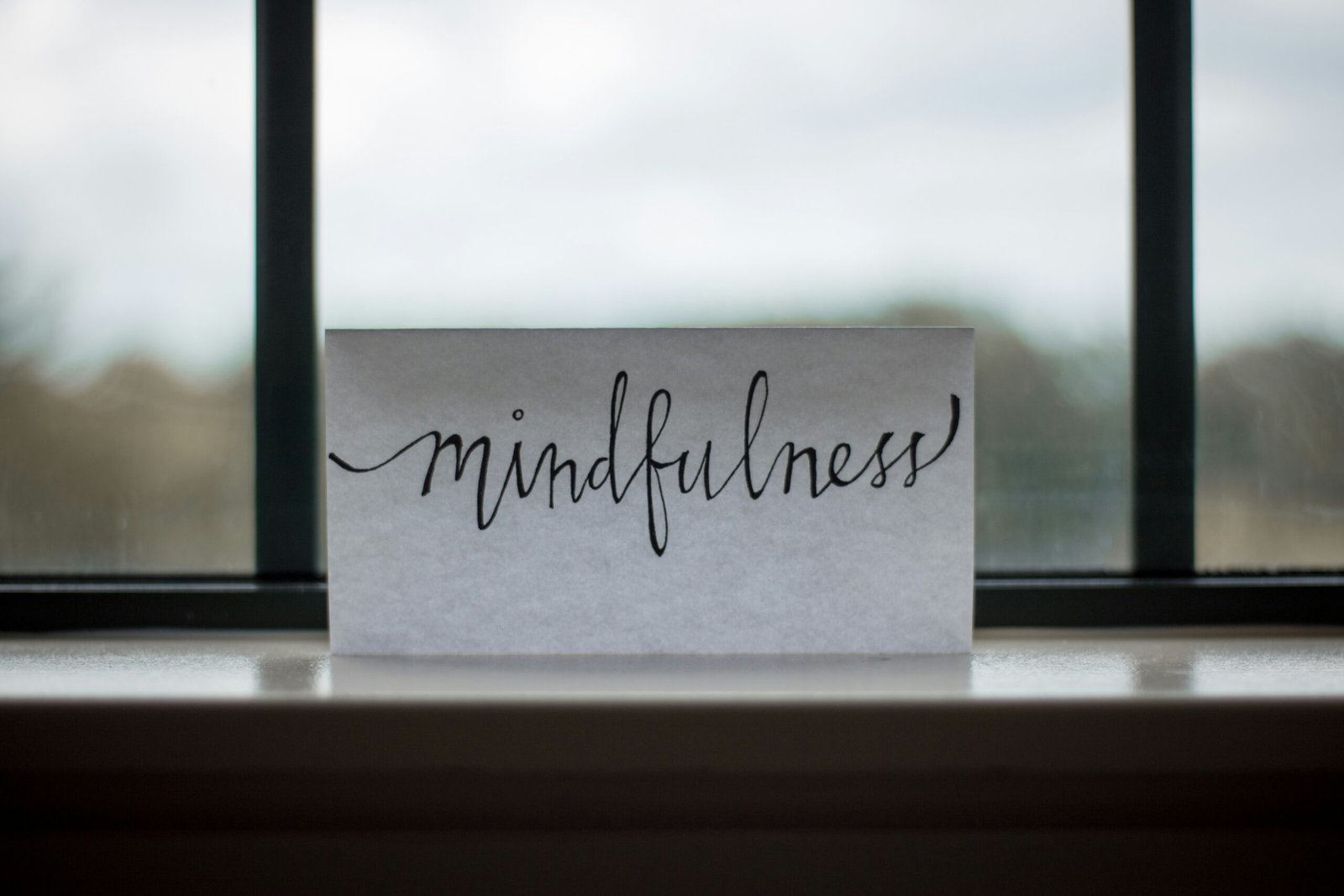
Mindfulness is a practice that involves bringing our attention to the present moment and observing our thoughts, feelings, and sensations without judgment. It is about cultivating a sense of awareness and acceptance of what is happening within us and around us. In recent years, mindfulness has gained popularity as a powerful tool for improving mental health and well-being.
One of the key benefits of mindfulness is its ability to reduce stress and anxiety. When we are mindful, we are better able to recognize and respond to stressors in a calm and collected manner. Instead of getting caught up in a cycle of negative thoughts and emotions, we can observe them without getting carried away by them. This can help us break free from the grip of anxiety and find a sense of calm and peace.
In addition to reducing stress, mindfulness can also improve our ability to focus and concentrate. In today’s digital age, where distractions are abundant, many of us struggle with maintaining our attention on a task. Mindfulness practice can train our minds to stay present and focused, allowing us to be more productive and efficient in our daily lives.
Furthermore, mindfulness has been found to enhance our emotional well-being. By developing a non-judgmental awareness of our emotions, we can better understand and regulate them. This can lead to greater emotional resilience and a greater capacity for happiness and contentment.
Moreover, mindfulness can improve our relationships with others. When we are fully present and attentive in our interactions, we can truly listen and understand others. This can foster deeper connections and empathy, leading to more fulfilling and meaningful relationships.
Overall, the practice of mindfulness is a valuable tool for enhancing mental health and well-being. By bringing our attention to the present moment and cultivating a non-judgmental awareness, we can reduce stress, improve focus, enhance emotional well-being, and strengthen our relationships. In a world that often pulls us in multiple directions, mindfulness offers a way to reconnect with ourselves and find inner peace.
What is Mindfulness?
Mindfulness is the practice of being fully present and engaged in the present moment, without judgment. It involves paying attention to our thoughts, feelings, bodily sensations, and the surrounding environment. By cultivating mindfulness, we can develop a greater sense of self-awareness and a deeper understanding of our inner experiences.
While mindfulness has its roots in ancient Buddhist traditions, it has gained significant popularity in recent years as a secular practice. It is now widely recognized for its numerous benefits for mental health and well-being.
Mindfulness has been extensively studied and research has shown that it can have a profound impact on our lives. One of the key benefits of mindfulness is its ability to reduce stress and anxiety. When we practice mindfulness, we become more aware of our thoughts and emotions, allowing us to respond to them in a more calm and balanced way. This can help us to break free from the cycle of negative thinking and worry that often leads to stress and anxiety.
In addition to reducing stress, mindfulness has also been found to improve focus and concentration. When we are fully present in the moment, we are better able to pay attention to the task at hand and avoid distractions. This can be particularly beneficial in today’s fast-paced world where we are constantly bombarded with information and stimuli.
Mindfulness has also been shown to enhance our relationships and improve our overall well-being. When we are mindful, we are able to listen more attentively and respond with empathy and understanding. This can lead to better communication and deeper connections with others.
Furthermore, mindfulness has been found to have physical health benefits as well. Research has shown that it can help reduce blood pressure, improve sleep quality, and boost the immune system. By practicing mindfulness, we can take a proactive approach to our health and well-being.
Overall, mindfulness is a powerful practice that can transform our lives. It allows us to live more fully in the present moment, free from judgment and preoccupation. By cultivating mindfulness, we can experience greater peace, happiness, and fulfillment in our lives.
6. Improved Cognitive Function: Research has shown that mindfulness can enhance cognitive function, including memory, attention, and decision-making. By training our minds to stay present and focused, we can improve our ability to process information and make clear and effective decisions.
7. Reduced Symptoms of Depression: Mindfulness-based interventions have been found to be effective in reducing symptoms of depression. By practicing mindfulness, individuals can develop a greater sense of self-awareness and self-acceptance, which can help alleviate feelings of sadness and hopelessness.
8. Decreased Rumination: Rumination, or repetitive negative thinking, is a common symptom of anxiety and depression. Mindfulness can help break the cycle of rumination by teaching individuals to observe their thoughts without judgment and let go of negative thinking patterns.
9. Improved Resilience: Mindfulness practice can increase our resilience to stress and adversity. By learning to stay present and non-reactive in challenging situations, we can develop a greater sense of inner strength and the ability to bounce back from setbacks.
10. Enhanced Self-Awareness: Mindfulness allows us to develop a deeper understanding of ourselves, including our thoughts, emotions, and patterns of behavior. By becoming more self-aware, we can make positive changes in our lives and align our actions with our values and goals.
11. Increased Empathy and Compassion: Mindfulness practice has been shown to enhance empathy and compassion towards others. By cultivating a non-judgmental and accepting attitude, we can develop a greater sense of connection and understanding with those around us.
12. Better Physical Health: The benefits of mindfulness extend beyond mental health and can positively impact our physical well-being. Research has shown that mindfulness can lower blood pressure, reduce chronic pain, and boost the immune system.
13. Enhanced Creativity: Mindfulness practice can stimulate creativity and innovation by allowing our minds to rest and recharge. By quieting the constant stream of thoughts and distractions, we can tap into our creative potential and generate new ideas.
14. Improved Relationships: Mindfulness can improve our relationships by helping us become more present and attentive to our loved ones. By practicing active listening and non-judgmental communication, we can foster deeper connections and strengthen our bonds with others.
15. Overall Well-being: The practice of mindfulness can lead to a greater sense of overall well-being and life satisfaction. By cultivating a mindful attitude, we can experience greater joy, gratitude, and contentment in our daily lives.
How to Cultivate Mindfulness
1. Start with Short Sessions: Begin by setting aside a few minutes each day to practice mindfulness. You can start with just 5-10 minutes and gradually increase the duration as you become more comfortable.
2. Focus on the Present Moment: Choose an anchor for your attention, such as your breath, bodily sensations, or a specific object. Direct your attention to this anchor and gently bring it back whenever your mind wanders.
3. Non-Judgmental Awareness: Practice observing your thoughts, emotions, and bodily sensations without judgment. Instead of labeling them as good or bad, simply acknowledge their presence and let them pass without getting caught up in them.
4. Incorporate Mindfulness into Daily Activities: Mindfulness doesn’t have to be limited to formal meditation sessions. You can incorporate it into your daily activities by practicing mindful eating, walking, or even washing the dishes. The key is to bring your full attention to the present moment.
5. Seek Guidance: If you’re new to mindfulness, it can be helpful to seek guidance from a qualified teacher or join a mindfulness-based program. They can provide you with the necessary tools and support to establish a regular mindfulness practice.
Practicing mindfulness can have numerous benefits for your overall well-being. It can help reduce stress, improve focus and concentration, enhance self-awareness, and promote emotional resilience. However, cultivating mindfulness requires consistent effort and practice. Here are some additional tips to help you deepen your mindfulness practice:
6. Create a Sacred Space: Designate a specific area in your home where you can practice mindfulness. This could be a corner of a room, a cushion, or a small altar with meaningful objects. By creating a dedicated space, you signal to your mind and body that this is a place for mindfulness.
7. Set Intentions: Before each mindfulness session, set an intention for your practice. This could be to cultivate gratitude, cultivate compassion, or simply to be present. By setting an intention, you bring focus and purpose to your practice.
8. Practice Loving-Kindness Meditation: In addition to mindfulness meditation, incorporate loving-kindness meditation into your practice. This involves directing kind and compassionate thoughts towards yourself and others. It can help cultivate feelings of love, empathy, and connectedness.
9. Practice Body Scan Meditation: Body scan meditation involves systematically bringing attention to different parts of your body, starting from the top of your head and moving down to your toes. This practice helps cultivate body awareness and can be particularly helpful for releasing tension and promoting relaxation.
10. Practice Mindful Communication: Extend mindfulness into your interactions with others by practicing mindful communication. This involves listening attentively, speaking with intention and kindness, and being fully present in the conversation.
Remember, mindfulness is a lifelong journey, and it’s normal to have moments of distraction or restlessness during your practice. Be patient with yourself and approach your practice with curiosity and openness. With consistent effort and dedication, mindfulness can become a valuable tool for navigating the ups and downs of life with greater ease and clarity.


